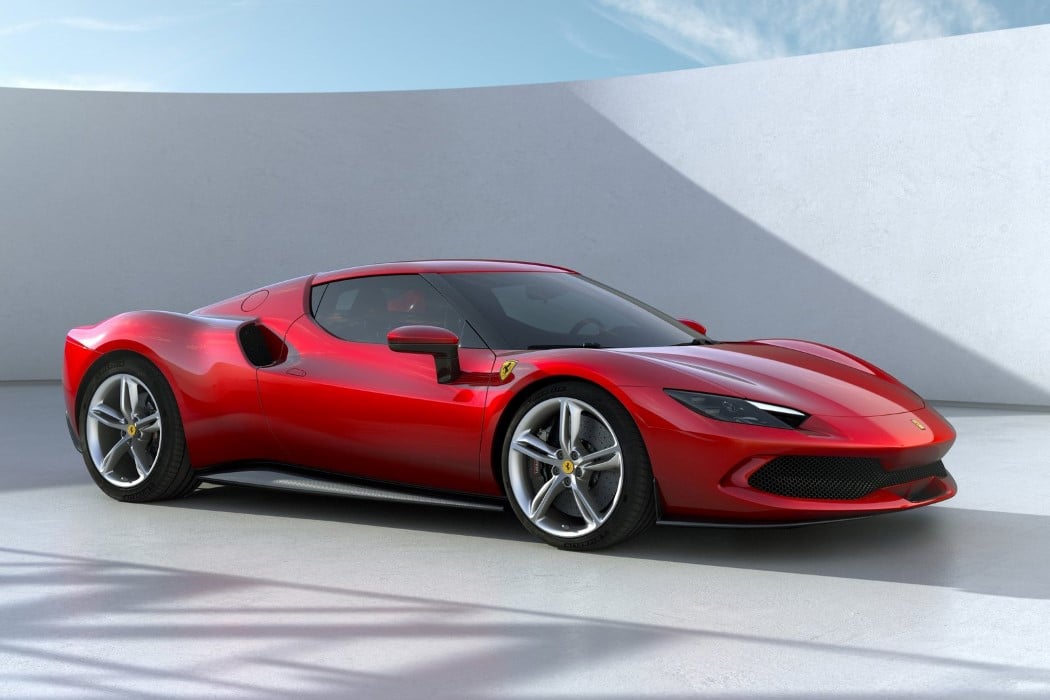
After the smashing success of the SF90 Stradale, the 296 GTB is the second hybrid from the Italian automotive company, hinting at a potential move towards the electric market.
The 296 GTB is the company’s first “mainstream” electric model. Unveiled today at a virtual event, the 296 GTB redefines the whole concept of fun behind the wheel, guaranteeing pure emotions not just when pushing the car to its limits, but also in day-to-day driving situations. Its name comes from the fact that the car is equipped with a 2,996cc, six-cylinder engine, while the GTB stands for Gran Turismo Berlinetta, harking to a long line of Ferrari sportscars that stretch back to the mid-1950s.
There’s something incredibly pure about the 296 GTB’s design. At first glance it does look quite inspired by the surfacing of the Tesla Roadster, although there’s nothing wrong with embracing purity over aggressively contoured surfaces and an overdose of air-intakes. Equipped with a short wheelbase and a flowy, monolithic design, the 296 GTB is perhaps the most compact berlinetta to emerge from Ferrari’s Maranello factory. The car comes fitted with Ferrari’s 120° Twin-Turbo V-6 hybrid engine (you can see a picture of it at the bottom of the article), perhaps one of the company’s most interesting pieces of innovation (there’s an entire article exclusively on the engine from Road & Track). The 296 GTB is also the first Ferrari hybrid automobile to not electrify the front axle, helping save weight and maintain the sheer dynamic purity of a rear-wheel drive.
The Ferrari 296 GTB draws a great deal of inspiration from the 1963 Ferrari 250 LM and 1974 Dino 246 GTS, especially the way its air intakes are integrated into the rear fenders and its use of a vertical rear window. Aerodynamically, the car depends primarily upon air management beneath it to develop downforce, resulting in an otherwise pure design uncorrupted by air-intakes. An active spoiler underneath the car and integrated into the rear bumper deploys to create a downforce of up to 360 kg at around 155 mph. The car boasts of a 0-100 of 2.9 seconds, and a top speed of over 205 mph. The rear is markedly different too, and I can’t help but miss Ferrari’s signature circular taillights. While Ferrari hasn’t hinted at a price, multiple European outlets have hinted that it could cost above $300,000. The car’s set to deliver in 2022.